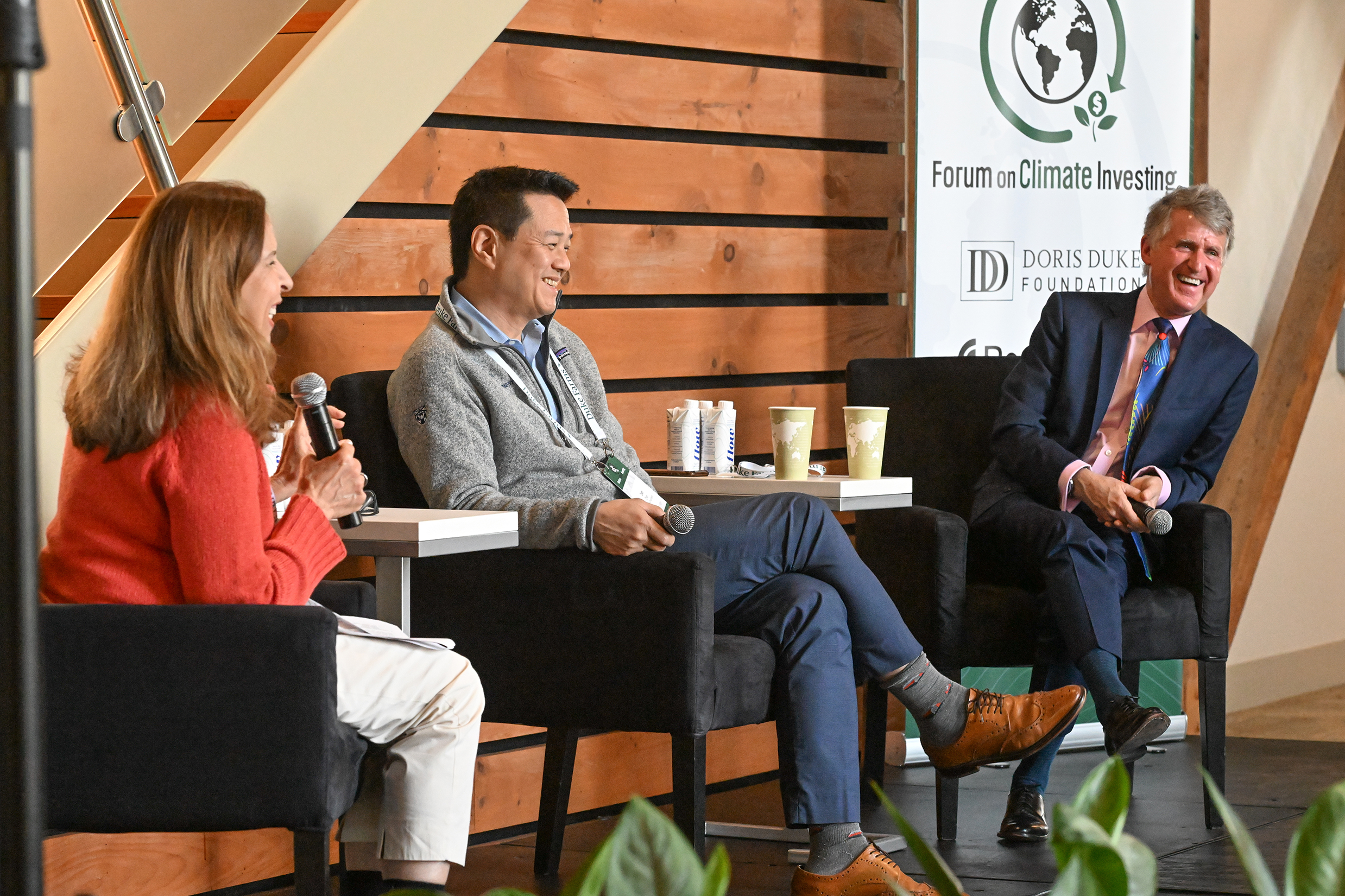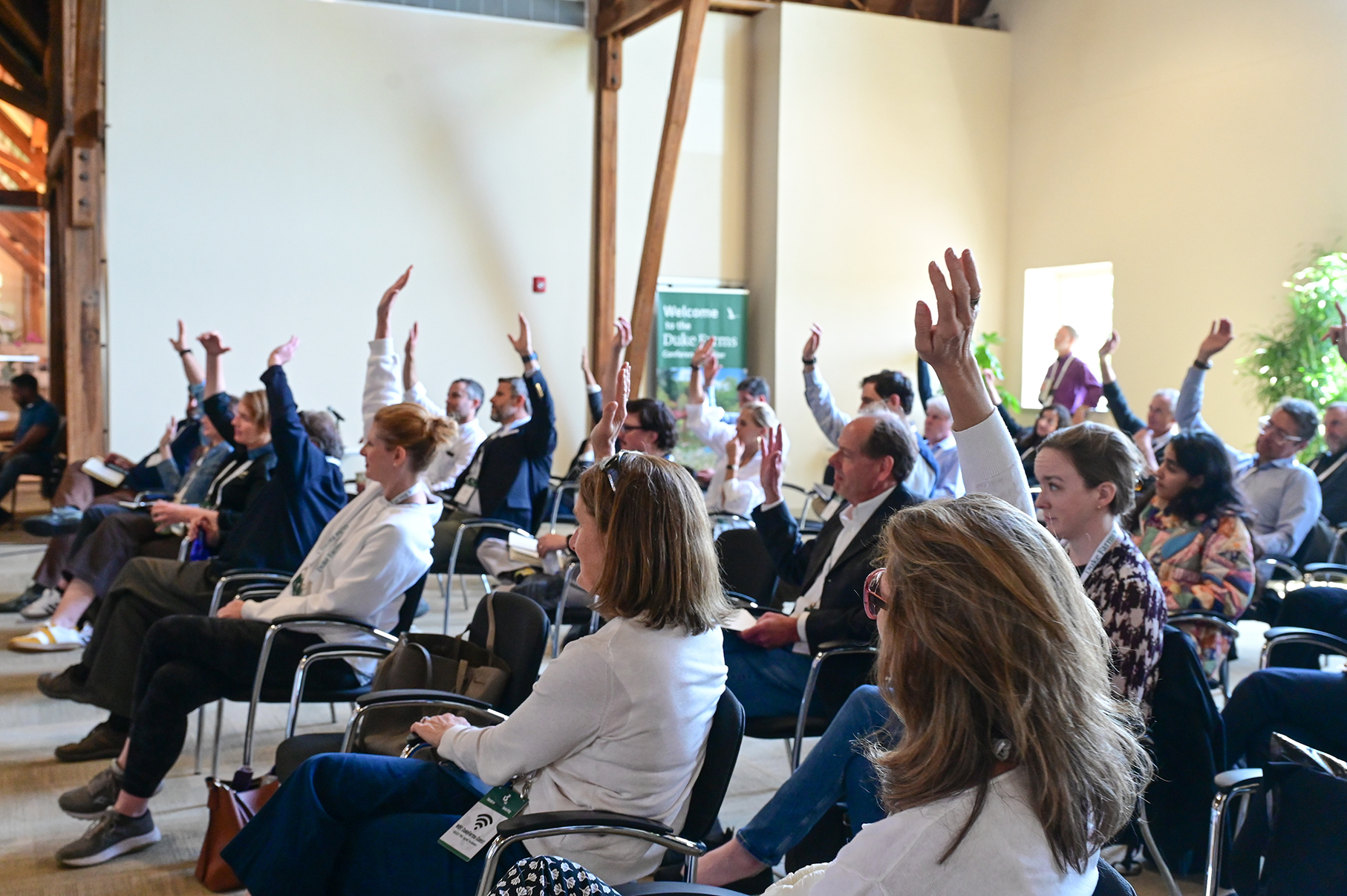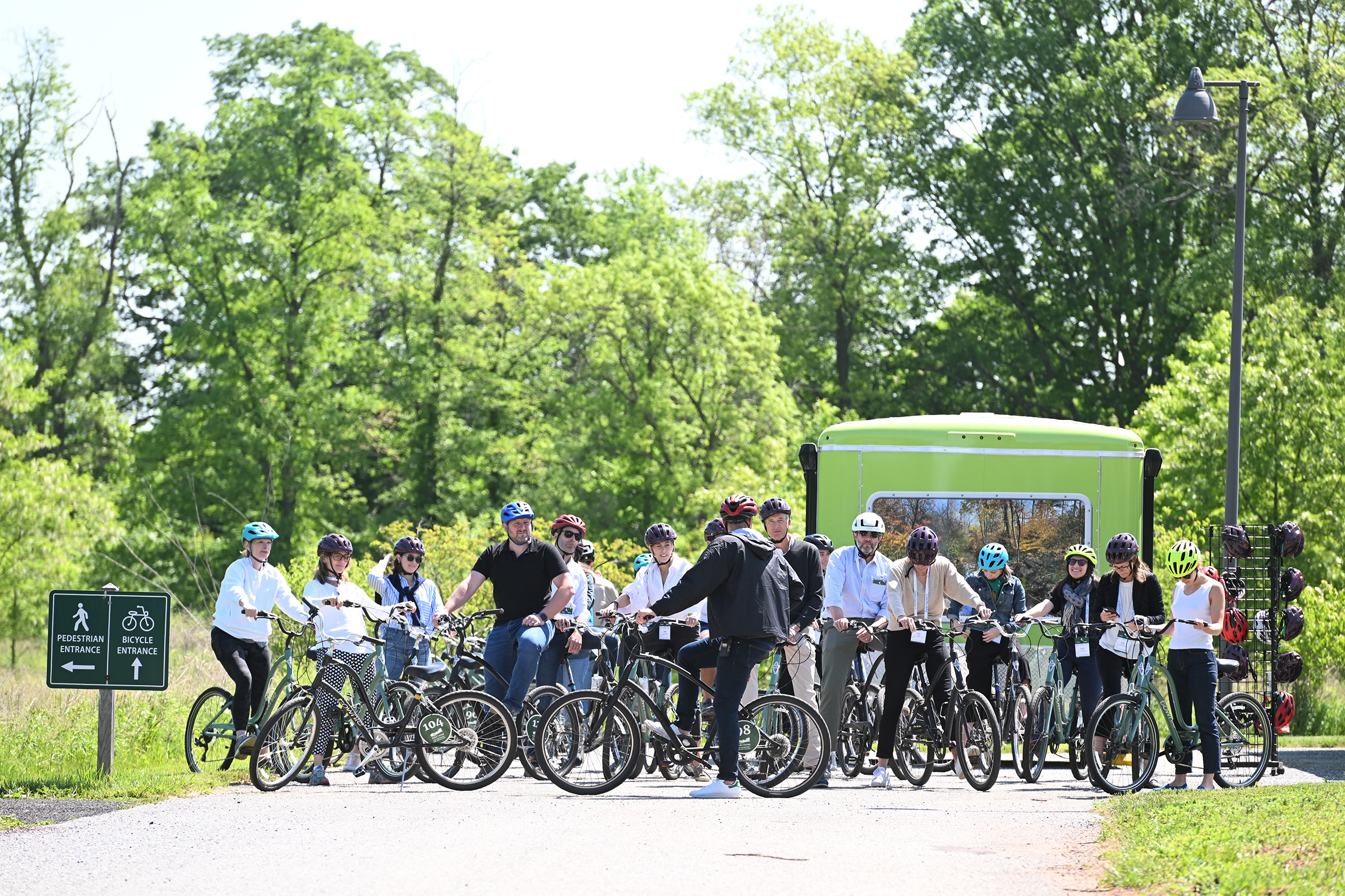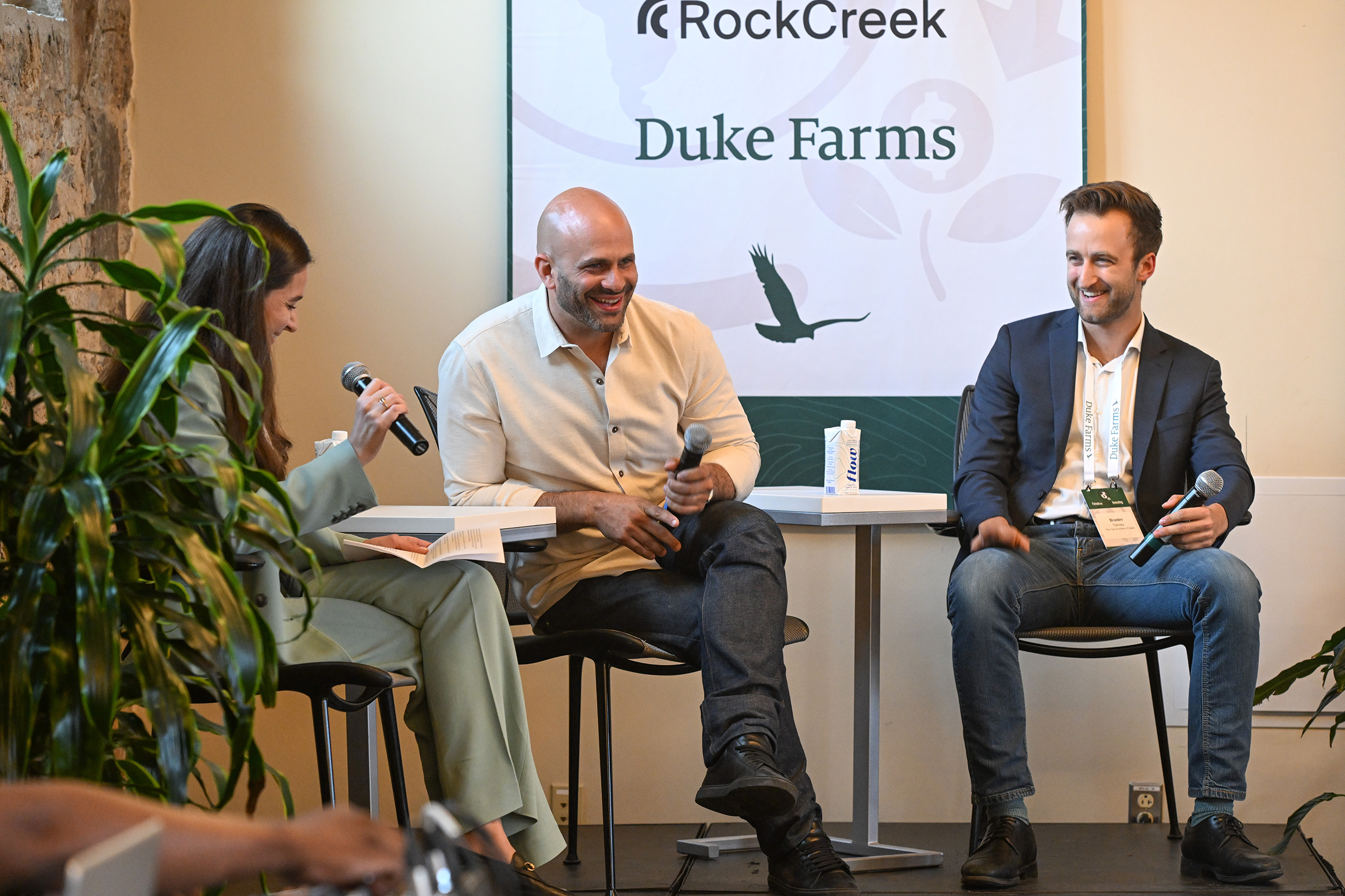
Afsaneh Beschloss (RockCreek), Don Chen (Surdna Foundation) and Rip Rapson (Kresge Foundation) discuss how foundations can combine social impact and financial returns.
“Energized.” “Motivated.” “Hopeful.” These were just a few of the sentiments shared at the close of our recent Forum on Climate Investing. Over 80 thought leaders including venture capitalists, public markets investors, growth equity investors, foundation presidents, chief investment officers, policymakers and entrepreneurs gathered to discuss ways that we could all use our unique positioning to tackle climate change. This convening was held at Duke Farms, our 2,700-acre environmental stewardship center that is a leader in wildlife conservation and sustainability innovation and helping people find their place in nature. Over the course of two days, attendees participated in panels and workshops, dined on delicious farm-to-table cuisine, explored the great outdoors and worked together to figure out what the investable opportunities and whitespaces are in the climate change arena.

Forum attendees testing their knowledge on the impacts of climate change
The forum was a candid, intimate setting for thoughtful discussion about the challenges institutional investors have faced allocating to this space, why the opportunity set is significantly better today than ever, and what the innovative and powerful new tools and solutions are that have genuine potential to address aspects of climate change. The conversation took for granted the premise of most similar conversations—that mobilizing endowment capital to address climate change is morally urgent—and instead pushed an interesting mix of investors, entrepreneurs and endowment managers to focus on the much harder question of how to do that well.
Climate investing can mean many things – risk awareness, a return opportunity, an avenue for creating impact – and can be seen as both a specialized sector and an undercurrent for the entire economy. The discussions at the forum highlighted that institutional investors have many ways of incorporating this topic in asset management that are entirely consistent with (and often beneficial for) a long-term fiduciary mindset.
We did this all in the beautiful setting of Duke Farms, a vibrant living laboratory for nature positive, carbon negative, natural climate solutions that kept front and center our fundamental connection to Earth, our shared home and what it is we stand to lose in this crisis. Amidst its thriving ecosystems, pioneering sustainability projects are tangible evidence of possible futures, imbuing our conversations with a deep sense of purpose and urgency. Nature is the ultimate motivator and this convening was especially powerful being surrounded by it.

Participants getting ready to start a bike tour of Duke Farms
We look forward to continuing these critical conversations and incorporating these learnings into our programmatic and investment strategies. Learn more about Doris Duke Foundation’s conservation funding by visiting our Environment Program page.
“Creating solutions that have, not just climate justice, but economic justice at the center, allows us to tackle more than one thing. We can walk and chew gum at the same time.”
- An entrepreneur with expertise in community development and identifying energy efficiency opportunities
“We can’t wait. We don’t have the luxury of waiting for the perfect. We need to be focused on the good, or in some cases, the very, very good and start deploying solutions now.”
- An investment manager focusing on environmental sustainability and climate-oriented investments
“Global perspective is so important in understanding, not just climate, but the world’s journey to a sustainable future.”
- Head of sustainability for a global asset management firm

Anahita Smeets (RockCreek), Sam Kass (Acre Ventures) and Braden Tierney (The Two Frontiers Project) explore innovations in AgTech and the importance of sustainability in improving health and nutrition outcomes.
All photos courtesy of Laura Pedrick.